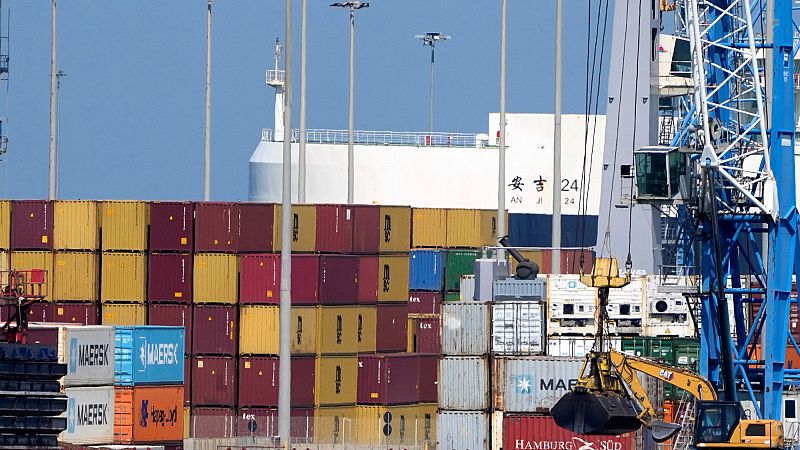Does the EU-US trade deal break WTO rules?

A fervent defender of a rules-based trading order, the EU has been under attack since its deal with the US, accused of betraying its commitments to the WTO and to multilateralism. But is that really the case?
At first glance, the 21 August deal grossly violates WTO rules: the US President, has unilaterally demanded preferential tariffs for US imports to the EU that breach the Most-Favoured-Nation (MFN) principle.
“From the perspective of WTO rules, the deal is discriminatory. We have fairly clear rules, namely the MFN principle: any tariff advantage granted to one member of the WTO must be extended to all WTO members,” Julien Blanquart, of law firm SheppardMullin, told Euronews.
But by applying 0% tariffs to US industrial goods and certain agricultural products, the EU is indeed offering an advantage that discriminates against its other international partners who do not benefit from the same access to its market.
The Commission points however to an exception to the MFN principle in article 24 of the WTO, which allows free trade areas or interim agreements, provided that they cover the majority of trade.
“The deal is part of an effort to liberalise and lower tariffs in a reciprocal manner,” a senior EU official said, pointing to the joint statement published by the US and the EU on 21 August, which states that the deal is “a first step in a process that can be further expanded over time to cover additional areas and continue to improve market access and increase their trade and investment relationship.”
Political impact
Blanquart underlined however that the framework agreement which has been presented is currently only a political statement and not a treaty which is legally binding.
"At this stage, everything really depends on how the current agreement will be translated into a final deal between the EU and the US, and how it will be notified to the WTO,” he said, adding: “As long as there is no official text, its compatibility with the rules remains legally fragile.”
According to the lawyer, a WTO member country could decide to bring the case before the WTO Dispute Settlement Body and challenge its validity.
However, this body has been paralysed since the US refused to renew the mandates of some of its judges.
Nevertheless, there could be a political impact for the EU, which presents itself as a champion of multilateralism.
“If it's declared non-compliant with WTO rules, it would be yet another blow to multilateralism,” Blanquart added.
Today

